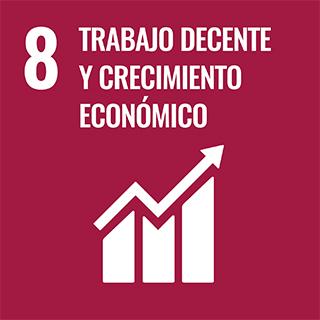
Indexed in
License and use
Citations
Impact on the Sustainable Development Goals (SDGs)

Profesionales del turismo activo a través de las leyes reguladoras en España
Publicated to:Rotur: Revista De Ocio Y Turismo. 14 (2): 55-69 - 2020-01-01 14(2), DOI: 10.17979/rotur.2020.14.2.5984
Authors: Lázaro Mediavilla Saldaña; Laura Martín Talavera; Virginia Gómez Barrios
Affiliations
Abstract
El turismo activo representa un importante sector a nivel económico dentro de la oferta turística que existe en España, ya que desde que comenzó su aparición en el territorio nacional, en los años ochenta, la demanda ha ido creciendo exponencialmente. Desde la publicación del primer decreto en 1991 se ha tratado de identificar este sector en relación a competencias, responsabilidades, actividades profesionales, etc. Centrando la atención en el aspecto formativo, esta investigación se centra en el perfil profesional de los responsables y técnicos al frente tanto de la entidad como de las actividades, para reflejar la gran variedad legislativa existente; y poder así reconocer y analizar las diferentes figuras que se identifican en dichas normativas. Esta investigación ha utilizado como técnica la revisión bibliográfica de los decretos reguladores de las actividades de turismo activo desarrolladas en el territorio nacional; así como el análisis, a través de una plantilla de Word 365, de las formaciones oficiales recibidas por estos profesionales identificados en los documentos. Se ha encontrado una gran heterogeneidad dentro de los decretos reguladores en relación a las titulaciones necesarias para ejercer en el sector del turismo activo; ya que en el territorio nacional no existe una formación reconocida que contemple todas sus necesidades. Por lo tanto, se plantea la circunstancia de que existe un sector profesional que no posee la herramienta, formación y cualificación adecuada para el servicio prestado.
Keywords
Quality index
Impact and social visibility
Leadership analysis of institutional authors
There is a significant leadership presence as some of the institution’s authors appear as the first or last signer, detailed as follows: First Author (MEDIAVILLA SALDAÑA, LAZARO) and Last Author (GOMEZ BARRIOS, VIRGINIA).